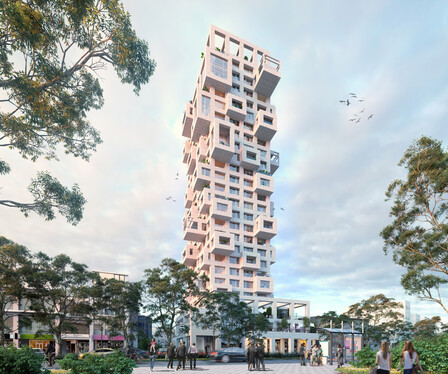
Airstream Trailer Merges Frank Lloyd Wright’s Aesthetic with Contemporary Utility

Modernist architects might have frequently asserted that form follows function, yet Frank Lloyd Wright warned that this saying is open to misinterpretation. “Form and function should be one,” he once stated, “joined in a spiritual union.” This “spiritual union” is particularly manifest in a recent partnership between the Frank Lloyd Wright Foundation (FLWF) and Airstream, an Ohio-based maker of recreational vehicles. Merging stunning design, luxurious finishes, and cutting-edge technology, the Frank Lloyd Wright Usonian Travel Trailer skillfully condenses the architect’s vision into its most fundamental components.
To craft the towable, limited-edition trailer, Airstream’s engineering and design teams collaborated closely with FLWF’s specialists at Wright’s Taliesin West residence and studio in Scottsdale, Arizona, concentrating mainly on archival resources provided by the foundation. Usonian concepts, popularized by Wright later in his lifetime, were also significantly integrated into the final design, paving the way for the complete optimization of compact spaces through easily stowed furniture. Perhaps the most remarkable feature is the trailer’s convertible twin beds, which, when collapsed, serve as bench seating but can be transformed at the push of a button into a king-sized bed—the largest option among Airstream’s current selections. The front living area offers a similar approach, where a pull-out sofa serves as an additional sleeping space, while a dining table and separate desk area can both be concealed within a wall cabinet. Each of these features has been artfully designed, evoking Wright’s streamlined, wooden shapes and organic curves.
The trailer’s layout is similarly impressive, achieving optimal use of space through its openness. This flow extends beyond the trailer’s borders, particularly via Airstream’s signature rear hatch feature and specialized porthole windows, allowing natural light to effortlessly pour into the area. The outcome is, as Wright would have appreciated, both functionally and aesthetically outstanding.
“We believe Wright’s design philosophy was always about assisting people in living with greater purpose, beauty, and joy,” Henry Hendrix, VP and chief marketing officer at FLWF, states. “Together, we’ve developed something profoundly linked to nature, adventure, and the essence of home.”
Indeed—but what genuinely sets apart the Frank Lloyd Wright Trailer is its integration of historical elements drawn directly from the architect’s illustrious career. The kitchen, for example, takes inspiration from an unrealized design discovered in a 1939 archive, while the trailer’s color scheme is derived from a 1955 Wright-curated Martin-Senour paint collection. The main entrance is also adorned with a custom graphic pattern that revives the Gordon Leaf mural, which was created in 1956 for House Beautiful editor Elizabeth Gordon by Wright’s apprentice and secretary, Eugene Masselink.
“The Golden Leaf is a beautiful natural motif that serves as a gateway to the natural realm,” Hendrix elaborates. “The design isn’t merely ornamental. It fosters a sense of fluidity and continuity from interior to exterior, which is prevalent throughout all of Wright’s creations.”
The Frank Lloyd Wright Usonian Travel Trailer will consist of a 200-unit production run and will be available for acquisition at Airstream dealers nationwide, priced at $184,900. For more information, visit Airstream’s website.
The Frank Lloyd Wright Foundation and Airstream have collaborated to engineer a travel trailer inspired by the architect’s vision and design aesthetic.
The Frank Lloyd Wright Usonian Travel Trailer showcases numerous elements influenced by archival materials sourced from the FLWF, including a naturalistic mural and a portable kitchen layout.
The travel trailer fuses Wright’s organic architecture with Airstream’s sleek aerodynamic shapes.